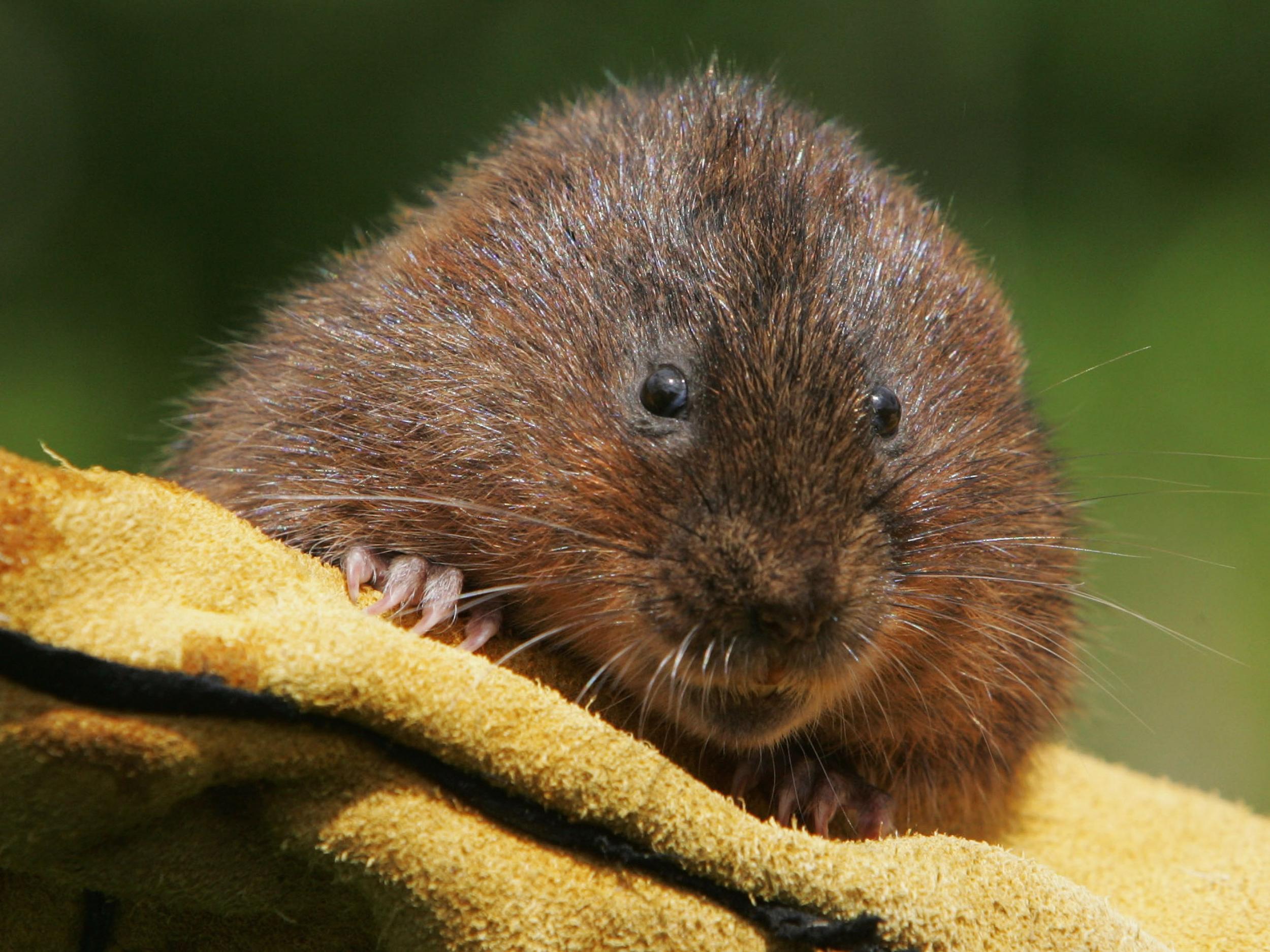Water voles to be released into British lake in 'biggest ever attempt' to save endangered animal
Creatures are UK’s fastest declining wild mammal

Your support helps us to tell the story
From reproductive rights to climate change to Big Tech, The Independent is on the ground when the story is developing. Whether it's investigating the financials of Elon Musk's pro-Trump PAC or producing our latest documentary, 'The A Word', which shines a light on the American women fighting for reproductive rights, we know how important it is to parse out the facts from the messaging.
At such a critical moment in US history, we need reporters on the ground. Your donation allows us to keep sending journalists to speak to both sides of the story.
The Independent is trusted by Americans across the entire political spectrum. And unlike many other quality news outlets, we choose not to lock Americans out of our reporting and analysis with paywalls. We believe quality journalism should be available to everyone, paid for by those who can afford it.
Your support makes all the difference.Endangered water voles are to be reintroduced into a Yorkshire lake where they have not been seen for 50 years.
Around 100 of the animals will be released into England’s highest freshwater lake, Malham Tarn, as part of the largest reintroduction project of its kind, according to ecologists.
Water voles are Britain’s fastest declining wild mammal, The Wildlife Trust says, and the species is now threatened.
The voles have been bred in captivity and will be set free in batches. They will spend two days in cages before being tempted out on the third day with apples and carrots.
Once a fixture of the British countryside, the water vole is thought to have lost 90 per cent of its population.
The decline in the numbers of voles in the UK was due to growing development, pollution and farming. But the most devastating factor for the vole population was the introduction of the American mink into the British countryside.
The carnivorous animals escaped from fur farms and spread across the UK in the 1980s and 1990s. A single breeding mink can eliminate an entire water vole colony. No mink have been seen near Malham Tarn for 10 years.
Roisin Black, a National Trust ranger, said: "In the rest of Europe, water voles are common. In Britain, the creatures are incredibly rare.
"We know water voles have thrived at Malham Tarn in the past and thanks to work by the National Trust, the habitat here is perfect for water voles again."
Water voles are strong swimmers and live in small burrows along the water’s edge. As well as lakes, they inhabit canals, rivers and ponds.
They have chestnut coloured fur and are commonly confused with brown rats. Water voles can be distinguished by their small ears and furry tails.
Ecologists will monitor the progress of the vole. If they thrive, the experts plan to release another 100 in June next year.
Subscribe to Independent Premium to bookmark this article
Want to bookmark your favourite articles and stories to read or reference later? Start your Independent Premium subscription today.
Join our commenting forum
Join thought-provoking conversations, follow other Independent readers and see their replies
Comments